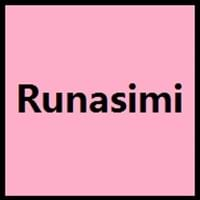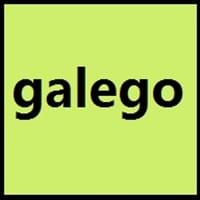Quechua and Galician
Countries
Argentina, Bolivia, Chile, Colombia, Ecuador, Peru
Galicia
National Language
Bolivia, Ecuador, Peru
Galicia
Second Language
Not spoken in any of the countries
Not spoken in any of the countries
Speaking Continents
South America
Europe
Minority Language
Not spoken in any of the countries
Not spoken in any of the countries
Regulated By
Not Available
Royal Galician Academy (Real Academia Galega)
Interesting Facts
- One of the most widely spoken indigenous language in the America is Quechua.
- Quechua language has borrowed many words from Spanish.
- In Galician language, there are no compound tenses.
- The earliest document in Galician language was written in 1228 which was legal charter for a municipality of Galicia.
Similar To
Not Available
Portuguese Language
Derived From
Not Available
Latin
Alphabets in
Quechua-Alphabets.jpg#200
Galician-Alphabets.jpg#200
Writing Direction
Not Available
Left-To-Right, Horizontal
Time Taken to Learn
Not Available
Thank You
Solpayki
Grazas
How Are You?
Allillanchu
Que tal estás?
Good Night
Allin tuta
Boas noites
Good Evening
Wuynas nuchis
Boa tarde
Good Afternoon
Wuynas tardis
Boa tarde
Good Morning
Wuynus diyas
Bos días
Please
Not Available
Por favor
Sorry
Pampachaykuway
Síntoo!
Excuse Me
Pampachaway
Perdoe!
Dialect 1
Ancash
Eastern Galician
Where They Speak
Peru
East Galicia
How Many People Speak
Not Available
Dialect 2
Huánuco
Central Galician
Where They Speak
Peru
Central Galicia
How Many People Speak
Not Available
Dialect 3
Yaru
Western Galician
Where They Speak
Peru
West Galicia
How Many People Speak
Not Available
Speaking Population
Not Available
Native Name
Qhichwa
Galego
Alternative Names
North La Paz Quechua
Galego, Gallego
French Name
quechua
galicien
German Name
Quechua-Sprache
Galicisch
Pronunciation
Not Available
[ɡaˈleɣo]
Ethnicity
Quechua
Not Available
Origin
16th Century
c. 1175
Language Family
Quechumaran Family
Indo-European Family
Subgroup
Andean Equatorial
Not Available
Branch
Not Available
Not Available
Early Forms
No early forms
Medieval Galician
Standard Forms
Quechua
Galician
Signed Forms
Not Available
Not Available
Scope
Macrolanguage
Individual
ISO 639 6
Not Available
Not Available
Glottocode
quec1387
gali1258
Linguasphere
No data Available
51-AAA-ab
Language Type
Living
Living
Language Linguistic Typology
Not Available
Not Available
Language Morphological Typology
Agglutinative, Synthetic
Not Available
All Quechua and Galician Dialects
Most languages have dialects where each dialect differ from other dialect with respect to grammar and vocabulary. Here you will get to know all Quechua and Galician dialects. Various dialects of Quechua and Galician language differ in their pronunciations and words. Dialects of Quechua are spoken in different Quechua Speaking Countries whereas Galician Dialects are spoken in different Galician speaking countries. Also the number of people speaking Quechua vs Galician Dialects varies from few thousands to many millions. Some of the Quechua dialects include: Ancash, Huánuco. Galician dialects include: Eastern Galician , Central Galician. Also learn about dialects in South American Languages and North American Languages.
Quechua and Galician Speaking population
Quechua and Galician speaking population is one of the factors based on which Quechua and Galician languages can be compared. The total count of Quechua and Galician Speaking population in percentage is also given. The percentage of people speaking Quechua language is 0.13 % whereas the percentage of people speaking Galician language is Not Available. When we compare the speaking population of any two languages we get to know which of two languages is more popular. Find more details about how many people speak Quechua and Galician on Quechua vs Galician where you will get native speakers, speaking population in percentage and native names.
Quechua and Galician Language Codes
Quechua and Galician language codes are used in those applications where using language names are tedious. Quechua and Galician Language Codes include all the international language codes, glottocodes and linguasphere.





